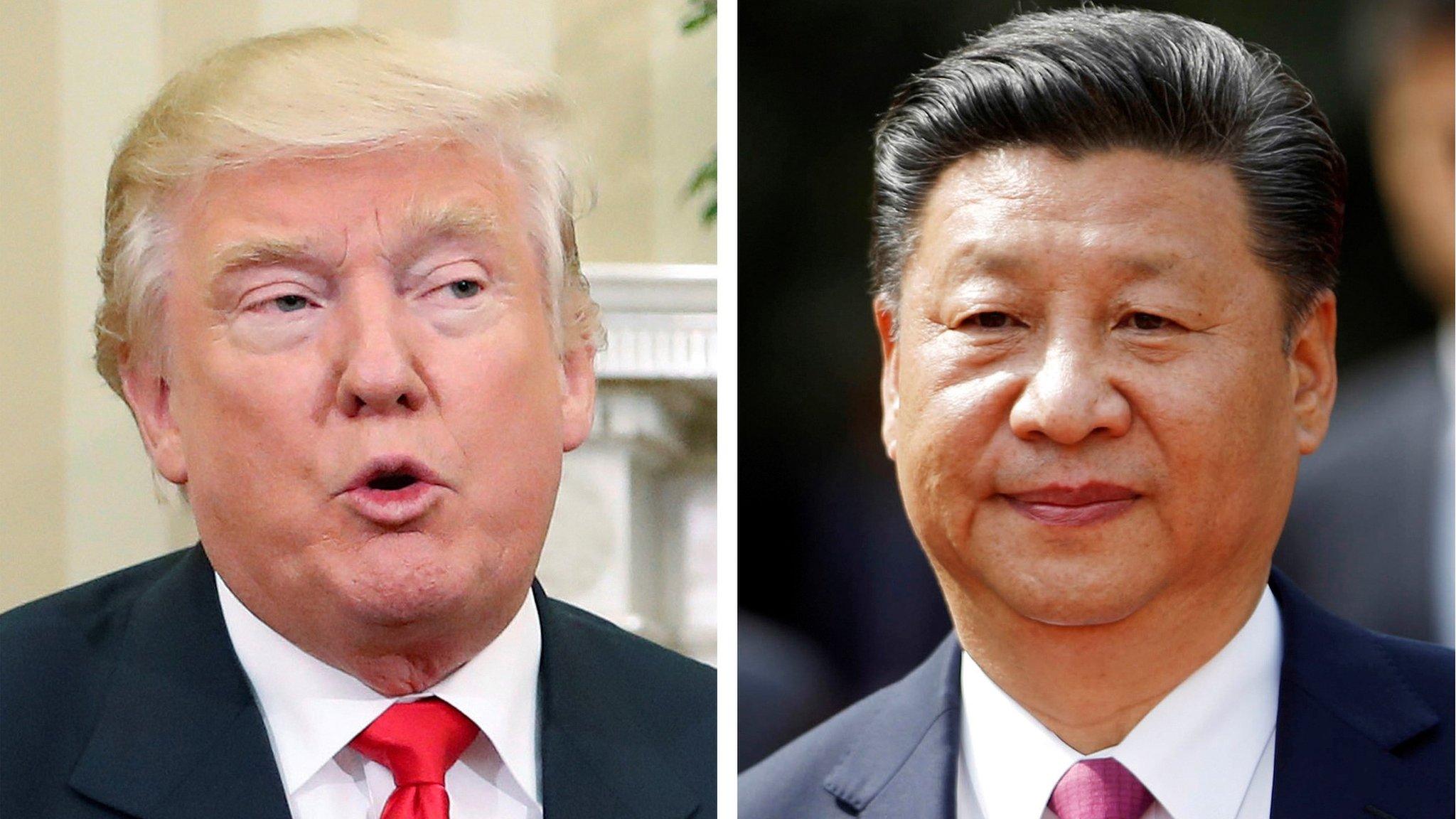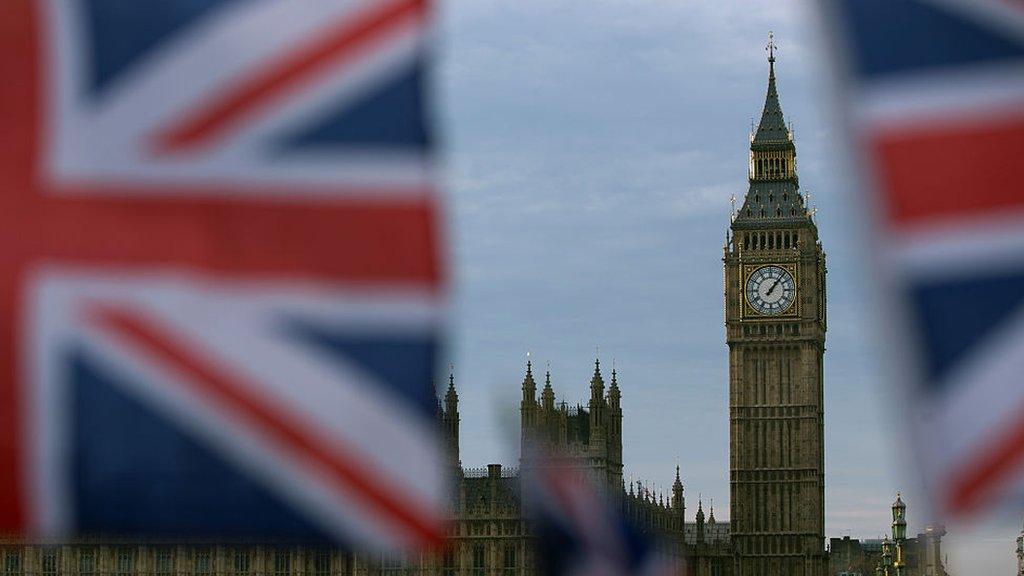IMF raises UK's growth forecast
- Published

The International Monetary Fund (IMF) has raised its forecast for the UK's economic growth this year, following a better than expected economic performance since the Brexit vote.
The IMF says, external it now expects the UK to grow by 1.5% this year, compared with the 1.1% it was previously forecasting.
Its prediction that the global economy will grow by 3.4% in 2017, and 3.6% in 2018, is unchanged.
But the possibility of more trade barriers could undermine the forecasts.
"Preliminary third-quarter growth figures were somewhat stronger than previously forecast in some economies, such as Spain and the United Kingdom, where domestic demand held up better than expected in the aftermath of the Brexit vote," said the IMF in its latest World Economic Outlook.
It added: "There is a wide dispersion of possible outcomes around the projections, given uncertainty surrounding the policy stance of the incoming US administration and its global ramifications."
For 2018, the organisation's forecast for UK economic growth has now been downgraded, from 1.7% last October to 1.4% now.
Trump policies
In producing this forecast, the IMF's economists have made some assumptions about the policies Donald Trump's administration will pursue, and they expect tax cuts and spending to boost the US economy.
The IMF now expects the US economy to grow by 2.3% this year, up from a previous estimate of 2.2%, while the forecast for 2018 has been raised to 2.5% from 2.1%.
In a statement, IMF chief economist Maurice Obstfeld cited Donald Trump's proposed tax cut and spending plans as an upside for growth.
However, he added there was "a wider than usual range of upside and downside risks to this forecast".

Analysis: Andrew Walker, economics correspondent
IMF forecasts (and everybody else's for that matter) always have to contend with uncertainty. But it is particularly pronounced this time.
The reason: the political change coming later this week in Washington. Just what policies will the Trump administration pursue?
That will be a lot clearer next time the IMF issues a forecast in April. For now the agency's economists have had to make some assumptions.
They assume there will be a boost to the US economy from the government finances. That means tax cuts and perhaps infrastructure investment (though some of that may be privately financed), which Mr Trump has promised.
Much harder to predict is the impact of his decisions on international trade. He has threatened to impose border taxes on a number of companies planning investments in Mexico.
He has also talked about renegotiating trade agreements and even suggested quitting the World Trade Organisation in some circumstances.
It is almost impossible to predict exactly what action he will take, still less what the impact would be on the US and other economies.

Looking at the world picture, the IMF said: "Notable negative risks to activity include a possible shift toward inward-looking policy platforms and protectionism, a sharper than expected tightening in global financial conditions that could interact with balance sheet weaknesses in parts of the euro area and in some emerging market economies, increased geopolitical tensions, and a more severe slowdown in China."
China's economic slowdown is predicted to continue, although the IMF now thinks it will be less pronounced this year than it previously expected.
Whereas previously it was forecasting China's economic growth this year would be 6.2%, now it thinks it will be 6.5% on expectations of continued policy stimulus.
The IMF thinks the decline in Russia and Brazil will probably end though neither country is expected to experience strong growth.
At the same time, it downgraded India's growth forecast by 0.4% to 7.2% as consumption in the country slows due to the government's recent demonetisation drive.
- Published16 January 2017

- Published15 January 2017
